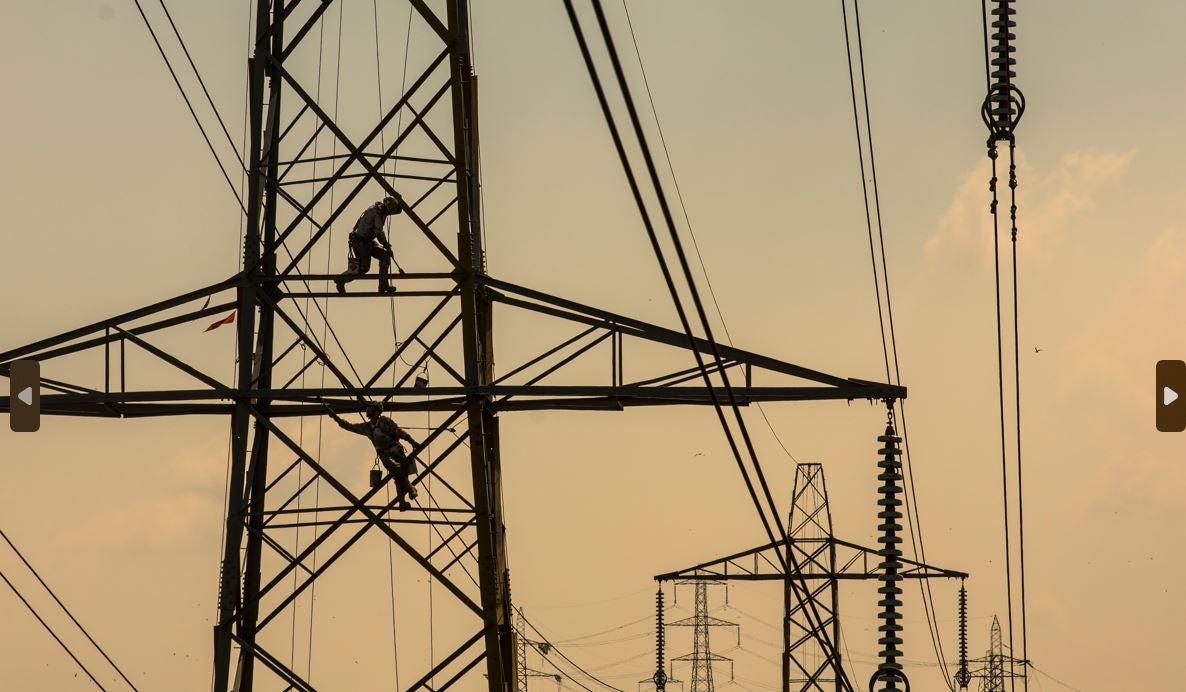
Renewable energy projects in the UK are being forced to wait between 10 and 15 years due to a lack of National Grid capacity, according to an investigation by the BBC. The delays have raised concerned about the feasibility of UK net-zero targets.
According to the investigation,“billions of pounds’ worth” of projects are now on hold. The UK’s National Grid claims that the issue requires “fundamental reform”.
Reporters found that energy companies, such as Octopus Energy, which is one of the largest energy companies in the UK, have been told to wait up to 15 years for grid connections.
The UK currently aims to completely decarbonise its energy industry by 2035, with 100% of its energy mix delivered by % renewables. During 2022, the percentage of renewable energies in the UK energy mix rose to 41.4%, compared to 39.6% in the year prior.
According to the Climate Change Committee, a think tank, the UK will need to increase its solar production by five times, and its wind production by four times to meet its net-zero ambitions.
The UK government and private investors have spent $249bn (£198bn) on renewable power infrastructure since 2010. According to the BBC more than $252bn (£200bn) worth of projects are currently waiting for grid capacity.

US Tariffs are shifting - will you react or anticipate?
Don’t let policy changes catch you off guard. Stay proactive with real-time data and expert analysis.
By GlobalDataGrowing frustration from energy companies
A number of energy companies have expressed frustration at the lack of available grid connections. Harald Överholm, chief executive of Swedish renewable energy firm Alight, told the Guardian that government has a role to play. “If the government had a consistent well-thought-through vision, this would have been absolutely obvious,” he said.
The UK National Grid has the longest backlog to connect to the UK energy grid in Europe. Demand for grid connectivity is growing significantly as the UK pursues greater renewable capacity as part of its Powering Up Britain policy.
The National Grid is a private company tasked with operating the majority of the UK’s electricity network. UK demand for electricity is projected to increase by 50%, by the company’s own estimates, as consumers increasingly adopt electrified technologies such as heat pumps and electric vehicles.
As part of their installation, new renewable energy projects require their own grid connectivity point including reinforcements and local substations. As little as 30% of new renewable energy projects that apply for grid connection are ultimately constructed.
Roisin Quinn, director of customer connections at the National Grid told the BBC that “fundamental reform is needed, more infrastructure is needed. We are working very hard to design and build at a faster pace than we ever have done before”.
According to a UK government announcement from 30 March, the Electricity Networks Commissioner will undertake an investigation to explore what can be done to speed up the planning process and network infrastructure for new renewable energy projects.
The National Grid told Power Technology that it is “committed to connecting projects to the grid as fast as possible. A majority of projects in the pipeline have connection dates within 12 months of their requested date, and we’re working with the electricity system operator, Ofgem and wider industry to introduce new ways to speed up the process for others”.



